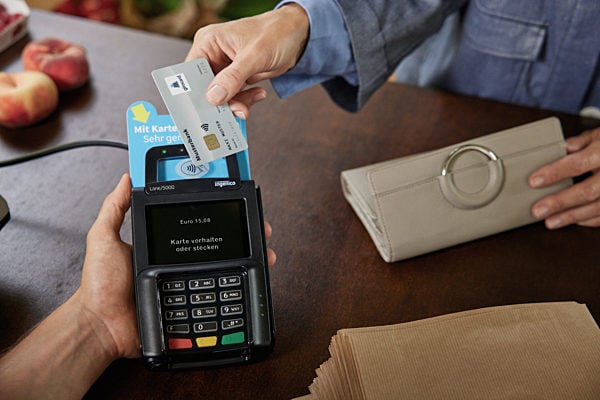Citing unnamed Western officials, the Wall Street Journal said the European-Iranian Trade Bank AG (EIH) had done more than a billion dollars of business for firms subject to US, UN and EU sanctions.
The German finance ministry said Monday it was not aware of any such infringements but that the country’s financial regulator, Bafin, and the Bundesbank central bank were looking into the claims made by the newspaper.
“At present we are not in possession of any information … about these reported infringements. But the Bafin and the Bundesbank are currently investigating all allegations against this bank,” spokesman Michael Offer said.
Contacted by AFP, the bank, known in Germany as the Europaeisch-Iranische Handelsbank AG, declined to comment.
The UN Security Council slapped a fourth set of sanctions against Iran in June for refusing to halt its uranium enrichment work, the most sensitive part of Tehran’s atomic drive.
They authorise states to conduct high-seas inspections of vessels suspected of ferrying banned items to Iran and add 40 entities to a list of people and groups subject to travel restrictions and financial sanctions.
Meanwhile, the US administration added Iranian individuals and firms to a blacklist as part of US and European efforts to tighten the screws on Iran.
The new US sanctions target insurance companies, oil firms and shipping lines linked to Iran’s nuclear or missile programmes as well as the Islamic Revolutionary Guards Corps (IRGC) and Iran’s Defence Minister Ahmad Vahidi.
The Journal said that EIH’s business partners include units of Iran’s Defense Industries Organization, the Aerospace Industries Organization and the Iranian Revolutionary Guard Corps.
In 2009, EIH appears to have been involved in a broad sanctions-evasion scheme, conducting transactions on behalf of Iran’s Bank Sepah that has been sanctioned for facilitating Iran’s weapons trade and proliferation activities, the paper said.
EIH was founded by a group of Iranian merchants in Hamburg in 1971, according to The Journal. It operates openly under the supervision of German bank regulators, but the US Department of Treasury blacklisted it for alleged illicit business with Iran, the report noted.



 Please whitelist us to continue reading.
Please whitelist us to continue reading.
Member comments